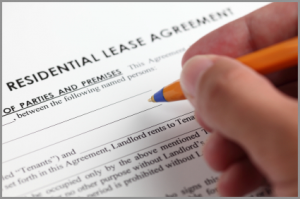
Health & Safety
Under the Health & Safety at Work Act 2015, Property Managers are considered Persons In Control of a Business or Undertaking (PCBU) when engaging contractors on behalf of a landlord. In this situation, Property Managers have a duty of care, so far as is reasonably practicable, to ensure the safety of everyone involved with or affected by work on or at the property they are managing.
What does this mean for you?
If you are undertaking work on the property or arranging your own contractors, this makes you the PCBU and liable for the health and safety of yourself, anyone affected by the work and the tenants. Please take this opportunity to check with your insurance company to ensure you are adequately covered.
Smoke Alarms
From 1 July, landlords will need to have working smoke alarms installed in all their residential rental homes. Any replacement alarms installed after that date will need to be long life photoelectric alarms. Hardwired smoke alarms are also permitted. Tenants will be responsible for replacing worn-out batteries in the smoke alarms and informing their landlords of any defects.
What does this mean for you?
We have always been vigilant when it comes to smoke alarms and all our properties have smoke alarms in place. Between tenancies, we will get our qualified handymen to check that smoke alarms are in place and operational.
Insulation
All residential rental homes in New Zealand will be required to have ceiling and underfloor insulation from 1 July 2019. However, a statement is required for new tenancies on the tenancy agreement about the location, type and condition of insulation in the rental home from 1 July 2016.
What does this mean for you?
If you have knowledge of the insulation at your property, please let us know so that we can add it to the agreement. Otherwise, we will get our qualified handymen to check (as much as possible) the location, type and condition of insulation between tenancies. We will then add this information to the tenancy agreement.
INSURANCE REMINDERS
A reminder that:
- it is important for landlords to have some form of insurance cover for their rental
properties, and
- they check with their insurer to be clear about landlord and tenant obligations
regarding their insurance policy.
Landlords should be aware that if a tenant causes damage to a property through carelessness (negligence), the tenant may be entitled to immunity from liability for the damage. The tenant’s immunity exists unless the damage is caused intentionally by them or their guests, by a criminal act on the property (such as manufacturing methamphetamine), or if the tenant has caused the landlord’s claim to insurance coverage to be irrecoverable.
What does this mean to you?
Please read your insurance policy very carefully and talk to your insurer. Since the Osaki Appeal ruling which found that tenants were not liable to damage to the owner’s property, the Tenancy Tribunal has given no definitive guidelines when damage occurs.
It is now possible that all bond claims for negligence may be rejected at the TenancyTribunal. Please read our blogs on the subject www.nightingaleproperties.net.nz and we will try to keep you informed.
P-labs
P-labs are currently receiving a lot of media coverage. Our policy has always been, and continues to be, that we vet prospective tenants thoroughly prior to accepting them as tenants and we carry out regular property inspections to monitor the state all properties. We look out for signs of drug manufacturing and will act immediately if we suspect anything illegal is occurring. We also have a Property Contamination Specialist company who can undertake testing if necessary. The legislation is unclear at present and it is not compulsory to test rental properties between tenancies.
Compliance with local body regulations
We have heard of one or two situations where a tenant has claimed back rent from their rental property on the grounds that the tenancy agreement was invalid due to non-compliance of the property with local body or building regulations. If you suspect your property does not comply in some way with local body or building regulations, we can advise you where go to for advice on the situation and how it might be remedied. The process can take some time but it is preferable to do something rather than leave it and hope it will not become a problem.
